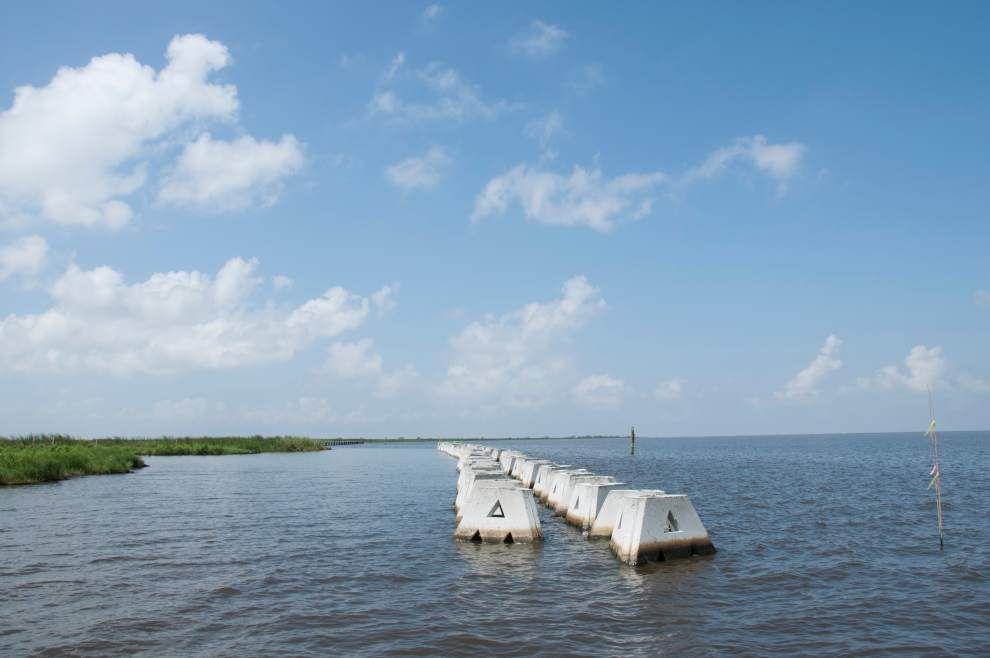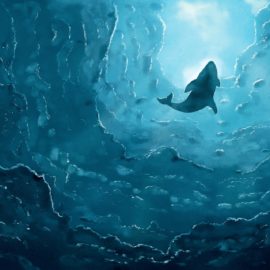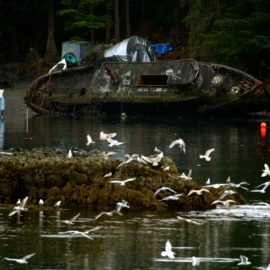
Photo provided by USDA Natural Resources Conservation Service
8 billion people in 195 countries and can they work together to save the planet? Bob Marshall tries to answer this question
Covering government efforts to manage pollution reminds me of reporting on similar campaigns to manage hunting and fishing. For many hunters and anglers, the planet extends only as far as they can cast or shoot. To them, whatever is happening inside the boundary of their world is happening everywhere outside of it. If fishing or hunting is slow there, it’s bad everywhere. So, during poor seasons, they’ll often call to change regulations before consulting science and data on what’s happening in the entire ecosystem.
nola.com
If things are going well – why change?
Of course, the opposite is true. If things are going great in my world — if the specks and reds and ducks are plentiful in my marsh or the deer are thick in my woods — there can’t be any reason to change anything. It’s the reason colleges for years have required social science studies for degrees in natural resource management. You can’t manage a public resource unless you can manage its users. But truly wild fish and animal populations don’t live inside fences. Their “range” is determined by the wider ecosystem that supports them. And that typically extends many, many miles and even entire continents and oceans beyond the casting or shooting range of that hunter or angler. Likewise, pollution — the human-produced poisons we pump into the air, pour into the water and spread across the ground — also doesn’t remain inside the boundaries of our individual worlds. The property lines you see in courthouse records and the political and national boundaries drawn on maps are not impervious walls extending into outer space. They can’t stop or contain pollution any more than they can stop the migration of waterfowl or the wanderings of deer, or stop the spread of diseases like COVID-19.
Take these examples and apply it to the world population.
Take those examples and apply them to 8 billion people living in 195 countries on the nearly 200 million square miles of the planet, and you begin to understand the size of the challenge facing governments trying to address climate change. And climate change is nothing more, or less, than a pollution problem: the pumping of human produced carbon and methane into the atmosphere. It’s the toughest pollution problem to solve ever because that atmosphere covers the entire list of human populations, all of which are living under different social structures, political systems and economic realities. Like those hunters and anglers, it’s hard for them to think in global terms, especially in an era when many of those societies prize individual freedom above all others, and where any commitment to community responsibility doesn’t extend beyond a neighborhood, city, state or country.
Those who fight unified efforts use these arguments, which are wrong.
Those factors are the fuel for the demagogues making political careers fighting the international cooperation and sacrifices that will be necessary for the entire planet to limit the worst impacts of global warming. They provide the doubts that confuse and mislead so many people. Such as: There is still doubt about the causes of climate change. (Actually, 97% of the climate scientists agree it’s human-caused,) Carbon capture technology will allow us to continue using oil and coal. (No, it won’t; but it can help) and Why should we cut back if China is now the biggest polluter? (Because we’re still No. 3 and still lead by far as the country most responsible for the emissions build-up since 1850s that caused the problem — and China is beginning to cut back.). There is no way any nation can survive climate change unless every nation helps. It is truly one of the recent examples in which it is accurate to say that no one is safe unless all of us are. Two other examples were world wars and a pandemic.
We have no choice but to work together.
All the evidence indicates we are nearing tipping points to permanent impacts. Things may not look much different on your patch of water or in your stretch of woods, but changes are rushing toward you just beyond your line of sight. Joining the world’s fight is the only option for long-term survival of your own world.
We talk of pollution moving state to state carried by the wind. The same thing happens with pollution.



